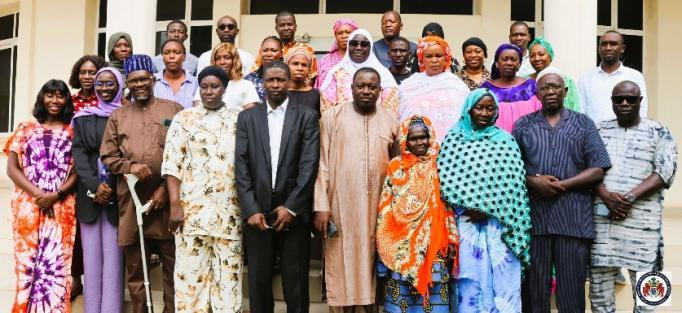Gender Ministry Launches Stakeholder Consultation to Identify Gaps, Enhance Gender Sensitive Inclusion Adaptation
By Sarjo Camara,Sulayman Bah
Copyright foroyaa

By Sarjo Camara
The Ministry of Gender, Children and Social Welfare, in collaboration with the Ministry of Fisheries, Water Resources and the Environment, has launched a three-day consultative workshop to identify gaps in sector policies and strategies related to climate change adaptation and gender mainstreaming.
The Consultation also includes other relevant stakeholders who will also assist in identifying these gaps in the relevant sectors, such as in gender, agriculture, fisheries and energy. The workshop is being held from the 13th to the 15th of September 2025.
Speaking at the opening ceremony, Mr. Saikou JK Trawally, the Deputy Permanent Secretary at the Ministry of Gender, Children and Social Welfare, emphasised the importance of the workshop’s theme by calling it “both critical and timely.”
“Climate change poses significant risks to our environment, economy and well-being of our communities. Its impacts are not felt equally because women, children and other vulnerable groups often bear the brunt of climate-related challenges,” DPS Trawally stated. He said the workshop offers a vital opportunity to evaluate four existing policies, namely: the National Gender Policy 2024-2035; Fisheries Policy; Agriculture and Natural Resource Policy, and the National Energy Policy, to assess their effectiveness, and identify critical policy gaps that must be addressed to enhance The Gambia’s climate resilience.
“The goal is not merely to critique, but to collectively develop actionable recommendations that will strengthen our national strategy to ensure that it is both climate responsive and inclusive,” he added.
Mr. Trawally also highlighted the interconnected nature of climate change adaptation and gender mainstreaming, stressing that progress in one area reinforces the other.
“Together, they support our national development goals, promote social equity, and safeguard the future of our nation. I am confident that the outcomes of this workshop will guide effective policy reform and strategic planning for a more resilient, inclusive, and sustainable Gambia,” he concluded.
Also speaking at the event was Mr. Babanding Kanyi, the Project Coordinator for the GEF6 project, which aims to “Strengthen Adaptive Capacities to Climate Change through Capacity Building for Small-Scale Enterprises and Communities Dependent on Coastal Fisheries in The Gambia.” Mr. Kanyi explained that the initiative aims to enhance the adaptive capacity and climate resilience of coastal fisheries, their dependent communities and enterprises, and said this will be achieved by: a) Mainstreaming climate change adaptation measures; b) Demonstrating and scaling up climate resilient business models; c) Promoting value addition and employment within the fisheries value chain particularly for vulnerable youth and women, and d) Empowering communities to reduce vulnerabilities in livelihoods, infrastructure, and ecosystems.
Mr. Kanyi emphasised the need to integrate gender equality and climate resilience into sectoral and national policies, and called for the promotion of climate-resilient regulatory and policy frameworks, quality and safety standards for fishery products and environmental safeguards adopted by the private sector. He emphasised the importance of cross-sector coordination and the development of operational guidelines in mainstreaming climate resilience into enterprise business plans, especially in areas such as post-harvest processing, market access and internal enterprise efficiency.
“The fisheries value chain, especially upstream operations, is particularly vulnerable to climate-related impacts on livelihoods and food security,” Mr. Kanyi noted, and further highlighted the challenges facing fisheries operations, including infrastructure deficits, waste management and conflicts over resource use, particularly with sectors like tourism and sand mining.
“Global scale, actor-based, and resource-specific challenges are increasingly being addressed through targeted policy responses and the adoption of private sector business models,” Mr. Kanyi concluded.



